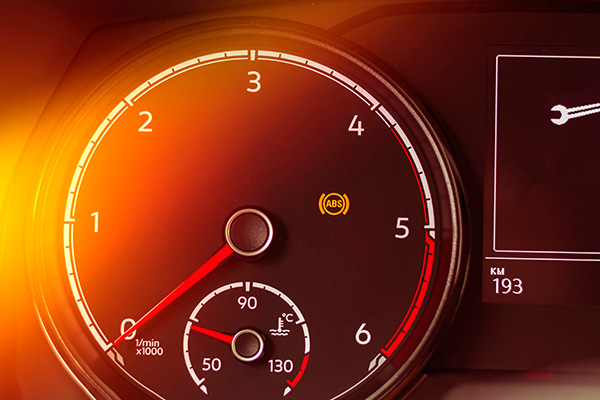
Did your car's ABS light pop up on the dashboard? It can be a bit alarming, especially if you’re unsure what it means. The ABS (Anti-lock Braking System) light is a warning indicator that something is wrong with the braking system, which is designed to prevent your wheels from locking up during sudden stops. While this light doesn’t mean your brakes are about to fail, it’s definitely a sign you shouldn’t ignore.
What Does the ABS Light Mean
ABS, or Anti-lock Braking System, is a safety feature in modern vehicles that prevents the wheels from locking up under hard braking. This helps maintain steering control and reduces the chances of skidding, especially in wet or slippery conditions. The ABS light signals that the system has detected an issue when it comes on. While your regular brakes will still function, the ABS itself may be compromised, leaving you without the added safety feature.
Common Reasons for the ABS Light to Come On
If your ABS light is on, several factors could be the culprit. Understanding these causes can help you diagnose the problem more effectively and take appropriate action.
1. Faulty ABS Sensors
One of the most common reasons for the ABS light to illuminate is a problem with the ABS sensors. These sensors are located on each wheel and monitor the wheel speed, sending data to the ABS control module. If the system detects inconsistent speed data, it assumes that a wheel might be locking up. Sometimes, the sensors can get dirty, damaged, or just wear out over time, leading to inaccurate readings and triggering the ABS light. Fortunately, cleaning or replacing a faulty sensor is a relatively simple fix for this issue.
2. Low Brake Fluid Levels
Another potential cause for the ABS light is low brake fluid. The ABS system relies on hydraulic brake fluid to function properly. If the fluid level drops too low, the system may struggle to maintain the necessary pressure, which can trigger the ABS light. Low brake fluid levels are often a sign of a leak or worn brake pads, so it’s essential to address this issue promptly. A quick inspection and top-up of the brake fluid might solve the problem, but it's wise to check for any underlying causes as well.
3. ABS Module Failure
The ABS module is essentially the brain of your car’s anti-lock braking system. It interprets the data from the sensors and adjusts the brake pressure accordingly. Over time, the ABS module can become corroded or damaged, which affects its ability to function correctly. If the module fails, it could cause the ABS light to come on and disable the system entirely. Unfortunately, repairing or replacing an ABS module can be more expensive than other fixes, but it’s crucial for the system's safe operation.
4. Worn Brake Pads or Rotors
Your ABS system works in conjunction with the standard braking components, like brake pads and rotors. If these parts are excessively worn, they can interfere with the ABS system's operation. Worn brake pads can create more heat, which could affect the sensors or even the brake fluid itself. While your regular brakes may seem to function normally, worn-out pads or rotors could trigger the ABS light. Replacing these parts is part of routine brake maintenance, so it’s worth checking them out if the light is on.
5. Blown Fuse
Sometimes, the issue can be as simple as a blown fuse in your vehicle’s electrical system. The ABS system relies on electrical components to function, and a blown fuse can cut power to those components. If this is the case, replacing the fuse should turn off the ABS light and restore the system to working order. Remember that fuses can blow for a reason, so you may need to investigate further if this happens repeatedly.
What to Do When Your ABS Light Is On
Seeing your ABS light come on doesn’t mean you need to panic, but getting it checked out as soon as possible is essential. While your vehicle’s normal braking function remains intact, you won’t have the extra safety benefit of ABS in emergencies. Ignoring the warning light for too long can lead to more significant and often costly repairs down the line.
If you feel confident in your knowledge of cars, you might inspect the brake fluid level or clean the sensors yourself. However, in most cases, it’s best to bring your vehicle to a professional who can accurately diagnose the issue and ensure your ABS system functions correctly.
Concerned about your car’s ABS light? Let the professionals at Mancinelli's Auto Repair Center take a look. Our experienced technicians will identify the problem and provide top-notch service to ensure your brakes are in optimal condition.